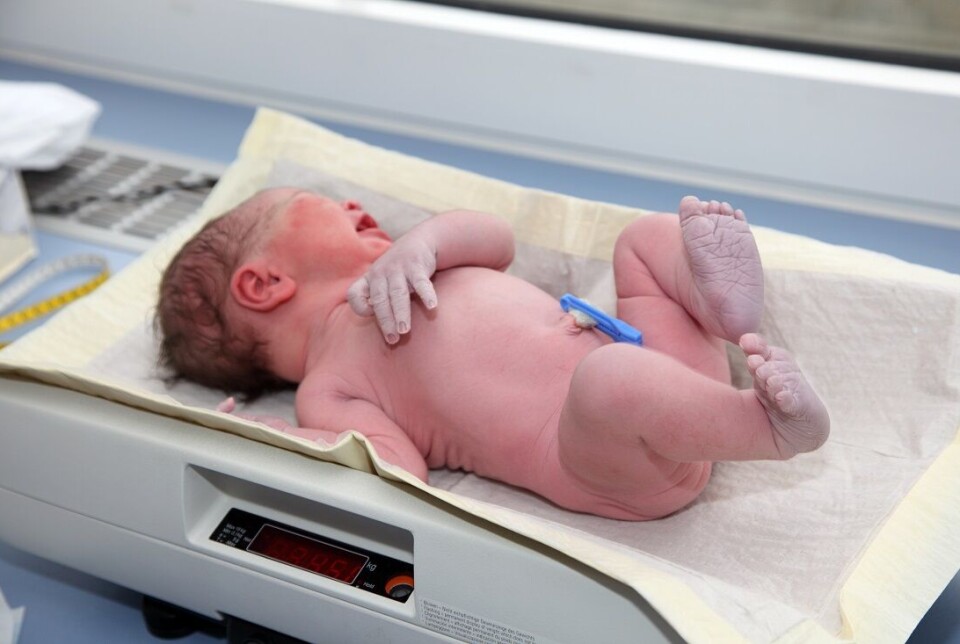THIS CONTENT IS BROUGHT TO YOU BY NTNU Norwegian University of Science and Technology - read more

Being born preterm can increase your risk of COPD and asthma
If you were born before your due date, you can take some measures yourself to prevent lung infections.
Shortening the pregnancy by a few weeks can have an impact on lung health.
“Doctors must become more aware of this,” Kari Risnes says. She is a professor at NTNU and a senior physician at St. Olav’s Hospital.
She is behind a new study which shows that the risk of developing chronic lung disease is significantly higher for those born preterm, even in adulthood.

“What we found supports previous findings that show an increased incidence of lung disease in childhood for this group. But no one has previously reported on the incidence of severe lung disease in adults in relation to how premature their birth was. This is new,” Risnes says.
Vulnerable group
It’s long been known that prematurely born children have an increased mortality risk in childhood and early adulthood.
In 2021, Risnes and her colleagues showed how the risk of dying from heart disease, chronic lung disease, and diabetes follows this group into adulthood.
Now, the researchers have taken a closer look at the incidence of asthma and lung diseases such as chronic obstructive pulmonary disease (COPD) in this group.
“What we see is that the risk of developing chronic lung disease is significant even in adulthood,” Risnes says.
The NTNU researchers used data from nearly 2.4 million individuals born in Norway and Finland between 1967 and 1999.
Approximately five per cent were born prematurely, meaning before week 37 of pregnancy. 13 per cent were born in what the researchers call 'early term', which is in weeks 37 and 38.
“We used data from patients who have been ill enough to have been diagnosed either in hospital or by private specialists,” Risnes says.

Concerned about COPD incidence
The figures show that all premature babies, including those born as late as week 38 of pregnancy, have a higher risk than full-term children of developing asthma.
But what oncerns the researchers is that they also have a higher risk of developing COPD, which is a more serious disease than asthma.
“This shows that it is important to prevent lung infections in this group. Asthma is not always a serious illness, and many people can live well with asthma today. But COPD is a serious disease that severely limits life,” Risnes says.
COPD is still a rare disease compared to asthma, even among preterm babies.
"But the overrepresentation of COPD in premature children is stronger than for asthma. This applies to children born close to full term," she says.
She believes that doctors must now pay more attention to the fact that shortening the pregnancy by a just few weeks can have an impact on lung health.
“There has always been a lot of attention around those born extremely early, but these make up a very small group. We now see that there is an increased risk of disease also in babies born towards week 37-38. Doctors have to start to see this as a risk factor,” she Risnes says.
Immature lungs before term
In other words, the length of pregnancy can be an indicator that can be used to determine whether to initiate investigation and treatment of adults with respiratory problems.
“Doctors need to start asking about the length of pregnancy, and pay attention to previous diagnoses such as asthma. It is important to get treatment that protects the lungs over the long term,” Risnes says.
While the baby is in the mother’s womb, the placenta acts as the baby’s ‘lungs’, and in premature babies, the lungs have to take over the function of the placenta before they are fully ready.
If the lungs are too poorly developed, the baby needs mechanical breathing support after birth, a treatment that previously could damage the lungs.
“In the foetal stage, the lungs develop slowly, right up to term. As long as the baby is in the uterus, the lungs are closed, and when the baby is born, the lungs must suddenly start doing their job. Then it doesn’t take much for them not to function as they should. The more immature the lungs are, the more often the baby must be put on a ventilator,” she says.
Recommends vaccination and to quit smoking
Going back 30-40 years, the technology used for ventilators could damage newborn lungs. Over the last decades, pulmonary treatment of prematurely born babies has significantly improved.
Therefore, Risnes does not rule out the possibility of seeing a change in the incidence of lung disease as new generations grow up.
“Previously, the lungs of the newborns were damaged by the treatment. Today, we have completely different lung medicines and we have much better methods to support lung function. This probably means that we will have less of the most serious lung diseases. But the data here is not clear-cut,” Risnes says.
She believes the incidence of COPD and other serious lung diseases is concerning.
“If you know you were born too early, whether a lot or a little, precautions should be taken. For example, smoking is harmful, and you should get vaccinated to prevent lung infections. You should ensure that your lungs are in the best possible condition,” Risnes says.
Reference:
Pulakka et al. Preterm birth and asthma and COPD in adulthood: a nationwide register study from two Nordic countries, European Respiratory Journal, 2023. DOI: 10.1183/13993003.01763-2022
More content from NTNU:
-
New study: It may become possible to clean boats without toxins
-
Can biology reveal parental manipulation?
-
Fish farming is least harmful to the seabed in the north
-
Study: Centralising hospitals has reduced birth mortality
-
Early testing of schoolchildren: “We found absolutely no effect”
-
This determines whether your income level rises or falls





































